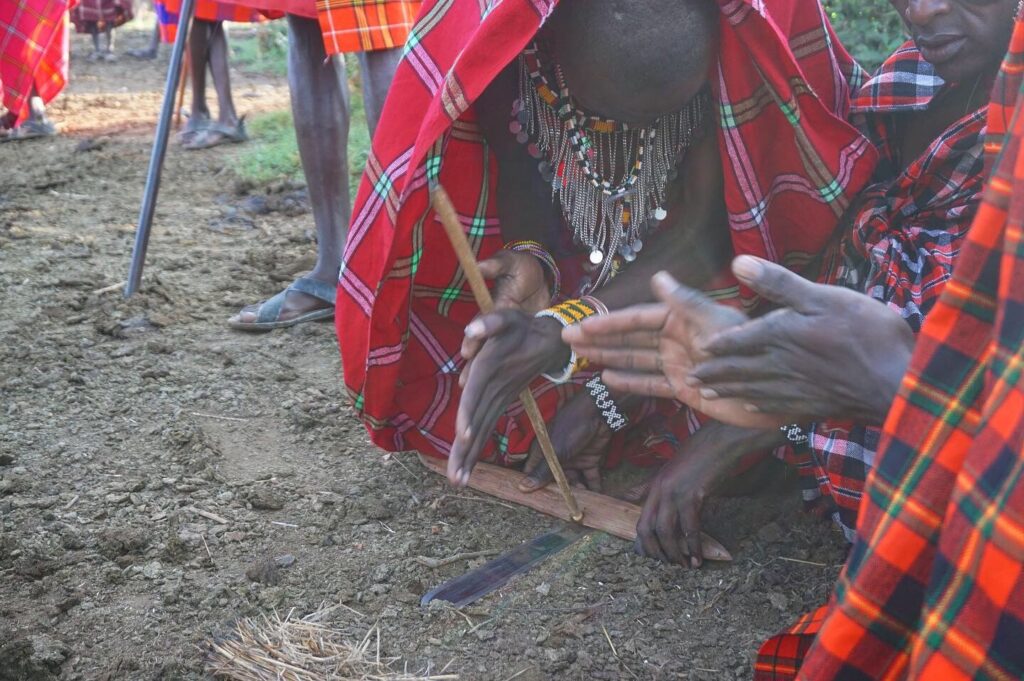Changing the Conservation Narrative

The dominant conservation narrative for centuries was fortress conservation, an approach that protects natural spaces by excluding human populations who are blamed for ecological degradation. This approach resulted in the displacement of local communities that have long had a deep, cultural, economic and ecological connection to this land. These millennia-old connections with the land have fostered healthy stewardship of ecosystems. Restricting access to land that these communities depend on for their livelihoods and wellbeing is also harmful to ecosystem health.
This exclusionary perspective is reflected in the land rights of many countries where protected areas that exclude people dominate the conservation landscape. The dominant land rights system is statutory land rights, which is where the state determines who owns how much land. Instead of granting Indigenous and local communities the autonomy to decide how to interact with the land, national laws restrict this either by prioritizing protected areas or through the exploitation of land for economic gain. There must be a shift to promote the inclusion of local communities in determining how to conserve nature. Rather than just looking at protected areas as a place to conserve nature in its most pristine form, we must shift the perspective to recognize that local communities can also benefit through the creation of effective and inclusive conservation strategies.
This shift is realized as a conservation economy. What is this? A Conservation Economy focuses equally on local community leadership, ecological wellbeing, and economic functionality. These “economies” — or systems — operate by linking the intrinsic value of nature to the understanding that sustainable management of resources can provide economic opportunity for Indigenous and rural communities through restorative, conservation-based revenue streams for stakeholders. At EcoCiv, we believe that a shift toward this conservation economy is one way to efficiently promote the wellbeing of both people and the planet. This perspective promotes an effective conservation strategy while ensuring that these communities continue to use their land as a vehicle for economic sustainability. The goal is to ensure that local communities are the leaders in the decision-making processes of their land, resources, and economic system, instead of an external entity. Thus, a conservation economy relies on these voices and their knowledge to provide the best ecological and economic outcomes in their local context.
Local communities cannot lose their relationship with their land. Not only does it impact their way of life, but it reduces their ability to continue their cultural practices. This connection to nature held by these communities will forcibly decline over time if the conservation narrative does not change. Indigenous communities hold traditional ecological knowledge that is vital to conservation. These communities also recognize how human-nature relationships are integral to society. Reducing their ability to continue these relationships reduces the ability for future generations to continue these healthy, sustainable human-nature relationships. Granting these communities a voice to determine what conservation methods are the most effective is the only way to ensure that land is protected for the right reasons in the right way. This is what we try to accomplish at EcoCiv: to grant local communities the voice to feel heard on issues impacting their own land to ensure the long-term viability of their cultural, economic, and ecological relationships with nature.
There is much to do and the work here at EcoCiv is only beginning. There must be a shift away from the paradigm of fortress conservation that has dominated the conservation ideology for centuries. The Conservation Economies project is an emerging project, created through the recognition that the current models in place will not result in long-term, sustainable growth for these local communities. Future projects that ensure the inclusion and empowerment of these communities for the prosperity of both people and planet are projects that reflect the values of an ecological civilization.
Written by: Juliana Arnold
EcoCiv’s Communications and Writing Assistant
